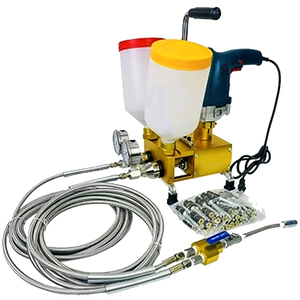The 2025 China Petroleum & Chemical International Conference took place in Ningbo on October 24, bringing together leading figures from government, industry, and research institutions. Under the theme “Decoding New Growth”, the event focused on how China’s petrochemical industry can navigate a rapidly evolving global landscape and achieve high-quality development.
Li Yunpeng, Party Committee Secretary and Chairman of the China Petroleum and Chemical Industry Federation (CPCIF), highlighted the dual challenges and opportunities facing the sector. He stressed the importance of responding to global volatility, advancing low-carbon transformation, and addressing gaps in high-end supply, while seizing opportunities through structural upgrading, technological innovation, and market expansion.
Deputy Party Committee Secretary and Vice Chairman Fu Xiangsheng noted that past growth relied on centralized project investment, but today, innovation-driven strategies are essential. “High-quality development now depends on green transformation, industrial upgrading, and fostering new productive forces,” he stated.
Zhejiang Province, home to the country’s largest petrochemical sector within its manufacturing industry, reported revenues of RMB 1.8 trillion for regulated petrochemical and chemical enterprises in 2024, ranking third nationally. Deputy Director Huang Xurong emphasized that the province will prioritize the creation of a world-class green petrochemical cluster, promote low-carbon industrial transformation, and develop safe, high-quality chemical parks to support sustainable growth.
Ningbo Executive Vice Mayor Zhao Haibin highlighted the city’s leading role in refining and ethylene production, noting its top-ranking industrial chain capacity in China. Plans are underway to strengthen the petrochemical cluster, upgrade the industrial chain, and drive the sector toward high-end, intelligent, and environmentally friendly development.
Li Yunpeng also reviewed the industry’s performance during the 14th Five-Year Plan, with total revenue reaching RMB 16.28 trillion in 2024 and profits totaling RMB 789.71 billion, reflecting strong resilience and innovation. With total import and export volumes reaching USD 948.81 billion, the industry continues to expand its global competitiveness. For the 15th Five-Year Plan, he proposed five strategic priorities:
-
Technological Innovation – Developing breakthrough technologies to upgrade the industrial landscape.
-
Green Transformation – Advancing low-carbon practices and sustainable development.
-
Industrial Layout Optimization – Creating cluster-based development zones.
-
World-Class Enterprise Cultivation – Strengthening competitive forces within the sector.
-
Digital and Intelligent Empowerment – Enhancing efficiency, safety, and decision-making.
Industry leaders also shared insights on emerging trends. Wang Jianbo (CNOOC) identified geopolitical uncertainties, carbon-reduction requirements, evolving energy demands, peak traditional demand, and structural global opportunities as key forces shaping the sector. Li Ruxin (PetroChina) emphasized innovation, digital transformation, and open cooperation as drivers of new growth. Sinopec’s Safety Director Liu Jiahai highlighted initiatives in green energy, carbon reduction, and industrial restructuring.
The conference showcased technological advancements, including AI-driven industrial optimization proposed by SUPCON Group founder Chu Jian, and international collaboration, exemplified by Sinopec and BASF aligning their carbon footprint accounting methodologies under TÜV Rheinland verification.
During the “Peak Dialogue”, global leaders underscored the importance of supply chain resilience, international cooperation, and sustainable innovation. Julie A. McAlindon (Eastman) and Sun Wenqing (ExxonMobil) highlighted China’s growing role in fostering high-quality development, while Jacob Duer (Alliance to End Plastic Waste) emphasized collaboration for circular economy solutions. European representatives advocated for stronger China-Europe partnerships to advance green transformation.
In closing, Pang Guanglian, Executive Vice Secretary-General of CPCIF, reflected on global best practices in innovation-driven growth and green transformation. He stressed that the petrochemical industry, as a backbone of the modern industrial system, must embrace sustainability, collaboration, and strategic innovation to thrive in a rapidly changing world.






0 comments